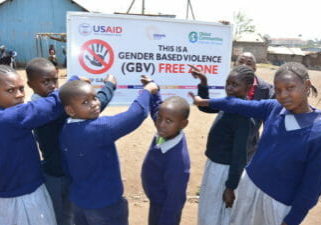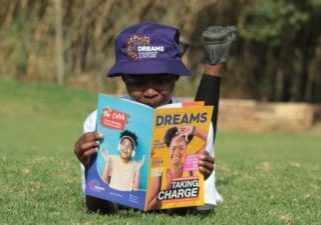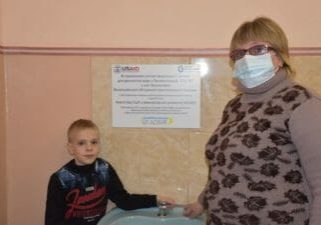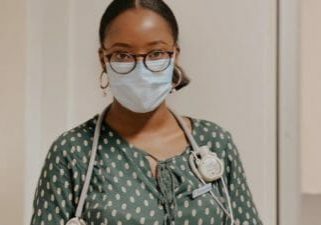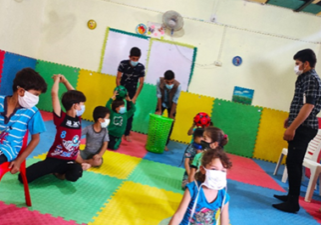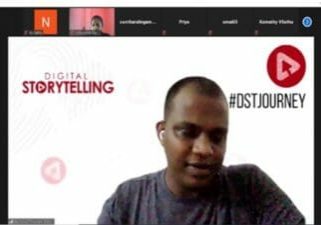News > Blog
Global Communities’ Programs in South Sudan
Published 03/06/2018 by globalcommunities
Community-driven Development for More Resilient Communities
Funded by USAID, the Promoting Resiliency through Ongoing Participatory Engagement and Learning (PROPEL) program employed a locally-driven, learning-focused approach to work with communities in South Sudan and help them identify, prioritize and implement projects to improve local resiliency. Through the program, Global Communities is used its Participatory Action for Community Enhancement (PACE) methodology to engage 54 communities through a process of community-driven development and associated assessments to determine needs and solutions for their most pressing development challenges. By promoting inclusive community-driven development tailored to the unique needs of diverse communities, PROPEL empowered community members to safeguard their development gains, advance their individual and collective well-being through tangible improvements in their daily lives, and set the stage for increased stability and prosperity.
Helping Returnees Resettle and Reintegrate in Abyei
With funding from USAID/OFDA, Global Communities implemented the Returnee Reintegration and Rehabilitation Program (3RP) to assist returnees, internally displaced people and host communities facing economic, infrastructure and food security challenges. The program focused on the provision of shelter as a catalyst to recovery and resilience. Safe shelter reduces the risks associated with living in unhealthy and hazardous living conditions. The program also helped establish sustainable livelihoods sources for returning populations and IDPs while providing host communities with increased income-earning potential. The program prioritized the needs of all beneficiaries, including women, disabled persons and the elderly, and trained health and social workers on appropriate gender-based violence (GBV) response management and psychosocial support for GBV survivors.
Preventing Sexual and Gender-based Violence
In areas, which continues to receive high numbers of returnees, conflicts between the returnees and host communities, inter-ethnic conflicts over natural resources continue along with sexual and gender-based violence (SGBV). Through multiple programs, Global Communities worked local partners, schools, service providers and the police to promote gender equity and reduce the high levels of SGBV. The Partnership Against Violence and Exploitation (PAVE), implemented in partnership with the South Sudan Women’s Network, was funded by the US Department of State’s Bureau for Women, Peace and Security and worked with community members, the Ministry of Gender, Child and Social Welfare, and local and international NGOs in the area. Through Gender Equality through Understanding Prevention Against GBV (GET UP), Global Communities worked with schools to raise awareness about gender equality and equal access to education for girls. The program also provided clinical training to service providers such as nurses and health care workers to respond to cases of GBV as well as training for police officers in case handling methodology for GBV cases. The Youth Action Against Violence and Exploitation in South Sudan (YAAVE)project worked in conjunction with PAVE to mobilize and empower youth against GBV in Juba County. The Women’s Empowerment to Abate Violence and Exploitation (WEAVE) program, funded by the U.S. State Department’s Bureau for Population, Refugees and Migration, focused on combating gender-based violence by reducing its acceptance and increasing government and community support for at-risk women. The program engaged both men and women in prevention, awareness raising, and dialogue; provided at-risk women with employment opportunities; improved health and sanitation practices; and enabled local leaders to identify and address GBV. Bold Response Initiatives to Deter GBV in Equatorial Sudan (BRIDGES) helped refugees return and reintegrate in Juba County by increasing public awareness of the prevailing dangers of GBV through media outreach and community engagement.
Promoting Economic Opportunities and Improved Livelihoods
In partnership with UNHCR, Global Communities is implemented the Abyei Assistance Program (AAP). Using a multipronged and integrated approach, AAP focused on protection, livelihoods for women, and water, sanitation and hygiene (WASH) activities that improve the well-being of vulnerable returnees, the displaced population, and host communities. Some of the activities included creation of a drop-in center for the provision of protection services, mobilizing communities around protection issues and training community members to serve as protection volunteers. AAP helped establish asset building groups (ABGs) around viable income-generating activities to help women improve their livelihoods and implemented WASH interventions in schools with a special focus on the hygiene needs of school-aged girls who often leave school due to a lack of safe, clean facilities. The program also had a special focus on assisting Persons with Special Needs (PSN) through the provision of shelter repair kits.
With funding from USAID/OFDA, Global Communities implemented the Improving Market Potential for Returnees through Opportunities for Viable Economic development (IMPROVE) program, which focused on facilitating the reintegration of new citizens into societal fabric by creating sustainable sources of income, strengthening food security and supporting livelihoods through vocational training, agricultural production and market-oriented micro-entrepreneurship. Supporting Economic Transition by Transforming Livelihoods and Environments (SETTLE), funded by USAID/OFDA, supported the re-integration of returnees and host communities through increased economic opportunity and the availability of productive livelihoods. The Community Livelihood Improvement Program for Southern Sudan (CLIPSS) worked to promote socio-economic development and improve living conditions in rural communities by increasing access to water supplies and sanitation facilities, infrastructure creation and rehabilitation, and livelihoods and skills development.
Promoting Civic Education and Awareness
Through the Southern Sudan Radio Distribution Initiative (SSRDI), Global Communities distributed approximately 70,000 radios in Lakes, Unity and Warap states of Southern Sudan in partnership with the National Democratic Institute (NDI) and as part of a larger civic education program funded by USAID. In addition to radio distribution, the program fostered civic awareness by creating community listening groups.

